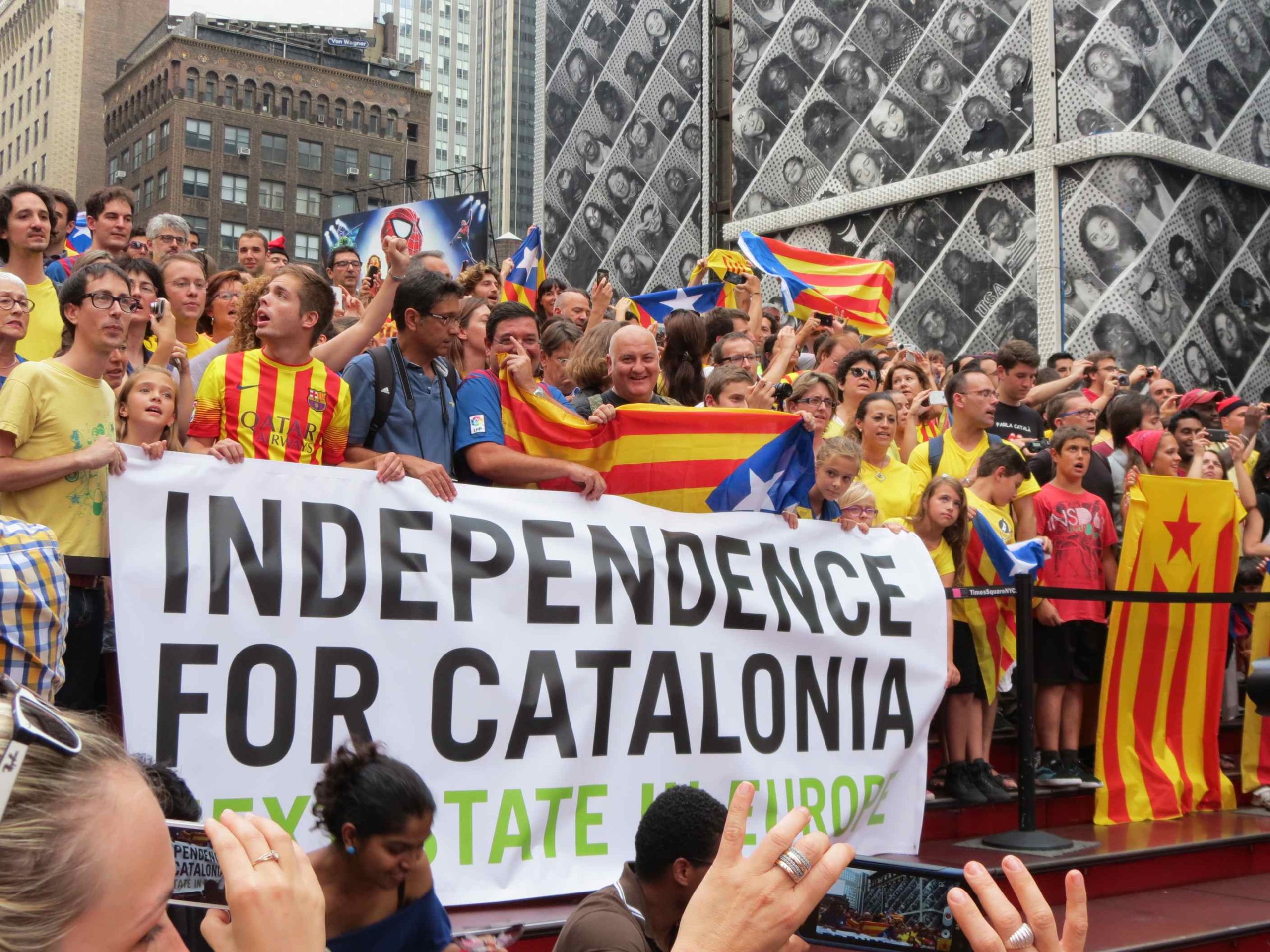The world’s eyes have turned away from Madrid. Nobody expected that international interest would be maintained throughout the trial of the Catalan independence campaigners, especially now the procedurally complex case is approaching its fiftieth day. But that should not make believers in the European project forget what is at stake there, in what is perhaps the most clear manifestation of the democratic problems facing the EU.
The Catalan nationalists of 2017 saw the EU as an ally. Their dream of creating an independent nation was largely made possible by the bloc’s efforts to make borders frictionless – an ideal which dramatically reduces the potential costs of becoming an independent state. But if the Catalan campaigners looked with anticipation to Brussels in those heady days two years ago, they got only a cold shoulder in return.
First Vice President of the European Commission, Frans Timmermans, defended the Spanish state’s defence of its laws and the “proportionate use of force” by its police. Beyond appeals for law and order, the vested interests of EU leaders in maintaining the unity of their own states – from secessionist movements in Veneto, Brittany, Flanders, Corsica, Bavaria, and elsewhere – ensured that their responses were characterised by a pro-Madrid passivity.
When I spoke to Clara Ponsatí, the former Catalan minister who escaped Spain’s charges of rebellion through self-imposed exile in the UK, she talked about the EU in a tone of abject betrayal. “The founding fathers of the union – the Monnets, the Spinellis – they had fought against fascism. They were true democrats,” she told me.
“I don’t think we can say the same for Tajani or Juncker.”
It is perhaps not surprising that the EU – already dealing with Brexit, the fallout from Italy’s elections, and growing democratic concerns with its Eastern members – had little appetite for an intervention. However, the way its officials and leaders have framed their appeals for ‘democracy’ is telling of the bloc’s wider problems.
Fundamentally, it boils down to two differing conceptions of democracy. One concept, employed by Madrid, stresses the rule of law. The other, voiced by the Catalan nationalists and their supporters, instead emphasises the importance of active citizen participation.
Both are necessary for a well-functioning democracy. They can also, however, be played against each other – as the Catalan situation demonstrates.
The EU clearly favours the first version of democracy. Referendums, more often than not, cause headaches for EU officials. Attempts to bring democratic accountability back down to a more local level are routinely bottled.
Indeed, one might question whether processes such as self-determination are even compatible with the European ideal of an ever-closer union operating beneath a supranational governance. For EU leaders like Jean-Claude Juncker, the creation of smaller polities and the interests of the bloc at large are far from easy bedfellows. When pressed on the events in Catalonia, he stressed to students in Luxembourg that he “wouldn’t like a European Union in 15 years that consists of some 90 states.”
As the media narrative moves away from Catalan democratic grievances in 2017 and instead towards the trial in Madrid, the whole prism through which the world views the Catalan question, too, is moving towards the legalistic conception of democracy favoured by Madrid and Brussels.
This is not to say Spain’s legal system is without fault. Criticisms can be made of the 1978 constitution, which place Spanish unity as a sacrosanct objective above all else; and elements of Spanish political culture which might impede a fair trial. Nonetheless, Madrid far prefers to frame the dispute as one of Catalan nationalists not respecting their country’s laws and judiciary, as seen by the huge funding they are throwing at their Global Spain campaign.
This shift in the way we judge the Catalan dispute is dangerous. A democratic respect for legitimate law – while important, as demonstrated in the EU’s decision to intervene in Hungary and Poland – can and must go beyond simply obeying rules. Citizens need the ability to influence laws and political conventions, and ensure they are applied fairly and equally. If not, those same laws become less the safeguards of a democracy and more an unpopular source of legitimacy for an out-of-touch political elite.
What’s more, the problems in Catalonia aren’t simply a matter of internal Spanish politics. Rather, the tensions which inspire it – between respect for largely status-quo enforcing laws on the one hand, and a more populist desire for people power and direct action on the other – are causing problems all over the continent.
By reinforcing the sanctity of Spanish constitutional law, EU leaders can rest easy knowing they have legality on their side. But by turning a blind eye to the Spanish state’s refusal to facilitate a legal process of self-determination, the EU is losing a chance to re-legitimise itself as the protector of democracy in the region. Without institutional change towards a more proactive strategy of realising democracy in Europe, one fears that the Catalan dispute will not be the last democratic crisis the EU chooses to observe passively.

